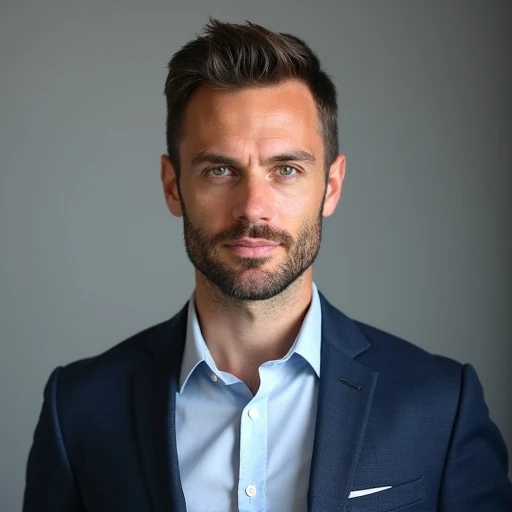Two school districts in New York have placed educators on administrative leave following controversial social media comments regarding the assassination of political commentator Charlie Kirk. The incidents have ignited a debate over free speech, employee conduct, and public transparency, with a state lawmaker now calling for clearer communication from school officials.
The Carthage and Watertown school districts confirmed the disciplinary actions but have not released specific details about the employees or the content of the posts. This has led to public pressure and a discussion about the legal and ethical boundaries for public school employees.
Key Takeaways
- Two New York school districts, Carthage and Watertown, have placed educators on administrative leave for social media posts.
- The posts were reportedly about the assassination of public figure Charlie Kirk.
- State Assemblyman Scott Gray is urging schools to be more transparent about their standards and actions.
- The situation highlights the complex relationship between First Amendment rights and public employment contracts.
- Legal experts and public officials are weighing in on the balance between protected speech and professional conduct.
Districts Take Action Amid Public Scrutiny
Officials from both the Carthage Central School District and the Watertown City School District have confirmed they are addressing separate incidents involving employees. Both districts have stated that the staff members in question have been placed on administrative leave while internal investigations proceed.
In public statements, both school systems have explicitly condemned the social media posts, making it clear that the views expressed do not represent the values or positions of the districts. However, citing personnel privacy rules, they have refrained from providing further details, which has fueled public demand for more information.
Many local residents have called for the termination of the employees involved. The districts are now navigating the challenge of addressing community concerns while adhering to legal and contractual obligations concerning employee discipline.
A State Lawmaker Demands Clearer Standards
Assemblyman Scott Gray, a Republican representing the 116th District, has entered the discussion, emphasizing the need for schools to communicate openly with the public to maintain trust. He argues that while the specifics of personnel matters are confidential, the general standards of conduct should be clear.
"To build trust, you have to communicate," Gray stated. "They have to be cognizant that they need a certain level of communication back to the public of generally what the standards are, and I think that’s really what this comes down to."
Gray's position focuses on the school's role as an employer. He suggests that the core issue is not about limiting free speech but about a school's right to enforce professional standards for its staff. He clarified his stance on the constitutional issues at play.
"I support free speech. I support the First Amendment. They have the right to those opinions, okay? The school districts, in this case, the educational system, has a decision to make, whether they will employ people who want to exercise that type of free speech," said Gray.
Public Employees and Free Speech
The First Amendment protects citizens from government censorship, but its application to public employees is complex. Courts have often balanced an employee's right to speak on matters of public concern against the government's interest in maintaining an efficient and undisrupted workplace. Speech that is deemed to interfere with school operations or undermine the employer's mission can sometimes lead to disciplinary action, even if it occurs outside of work hours.
The Legal Line Between Speech and Employment
The controversy brings to light the delicate legal balance between an individual's right to free expression and an employer's ability to regulate employee behavior. This is particularly true for public institutions like schools, which are bound by the First Amendment.
First Amendment Protections
Roy Gutterman, a law professor at Syracuse University, explained that the legal protections for such speech are often robust. "Offensive political rhetoric is well protected under the First Amendment," Gutterman noted. He added, "Public entities like school districts or municipalities are bound by the First Amendment, which means they have to allow certain speech to go forward."
This legal framework means that a public school cannot fire an employee simply for expressing an unpopular or offensive political opinion. The employer typically must demonstrate that the speech caused a significant disruption to the educational environment or their ability to perform their job effectively.
Contractual Limitations
While the First Amendment provides broad protections, employee contracts and union agreements often contain clauses regarding professional conduct. School and union officials have pointed out that many contracts include language that prohibits actions that could disrupt the classroom or harm the school's reputation.
These contractual obligations may provide the legal grounds for disciplinary action that a purely First Amendment analysis might not. The outcome of the investigations in Carthage and Watertown will likely depend on whether the districts can prove the social media posts violated these specific contractual terms by creating a disruptive environment.
Key Statistic on Social Media and Employment
According to a 2018 survey by The Harris Poll, approximately 70% of employers use social networking sites to screen candidates before hiring, and more than half have found content that caused them not to hire a candidate. This trend highlights the increasing importance of online conduct in professional life.
State Leaders Call for Reduced Tensions
The incidents have also drawn comment from state leadership, with Governor Kathy Hochul using the opportunity to call for a return to civility. She suggested that the heated nature of public discourse has led to a breakdown in basic respect.
Speaking on the broader issue, Governor Hochul remarked on the loss of fundamental social lessons.
"Basic lessons in humanity. It’s a shame that we even have to talk about that. What you would have learned, likely from your parents or in schools, in your houses of worship when you’re younger, but how did we lose that? Where does it go," Hochul said.
Her comments reflect a growing concern among public officials that extreme rhetoric, regardless of its legal protection, is damaging the social fabric. The focus, she implies, should be on de-escalating tensions and fostering a more respectful public dialogue.
As the Carthage and Watertown school districts continue their investigations, the community awaits a resolution that balances employee rights with the need to maintain a safe and stable learning environment for students.





